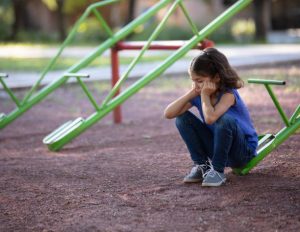OBSESSIVE-COMPULSIVE DISORDER (OCD) IN CHILDREN
Obsessive-compulsive disorder is a condition/disorder in which children have thoughts that are unwanted that come with behaviours that they feel they must do because of the thoughts. The unwanted thoughts are called obsessions while the behaviours that they do because of the thoughts are called compulsions.
OBSESSIONS
They are the feelings, thoughts and fears that children with obsessive-compulsive disorder always have. Children get anxious about certain things.
Things like:
1) Their parents neglecting them because of the new baby
2) Making a mistake and their parents punishing them for it
3) Getting hurt or dying or someone they love dying
4) Their parents abandoning them
5) Disobeying their parents and God
6) Doing something bad like having bad thoughts or hurting their younger ones or talking to a stranger
7) Breaking a rule
8) Something being right or wrong, clean or dirty, straight or uneven and safe or unsafe
COMPULSIONS
Children with OCD do these behaviours. OCD makes children feel they have to do certain things to make sure their parents don’t neglect or abandon them; things are right, clean and even. Most children believe doing these behaviours prevent bad things from happening.
Compulsions include:
1) Repeating a word or asking a question more than necessary
CAUSES
The cause of OCD is unknown but it is believed that biological factors contribute. Children can get OCD because it is in their genes or because they had an infection or someone got hurt because of them.
Children with OCD don’t always talk about their fears, feelings and behaviours. They may feel embarrassed, shy, anxious, confused and scared about their fears and feelings and the parents reaction to them. They may worry about how others will laugh at them because of their fears and behaviours. So, they tend to hide the behaviours and feelings. The behaviours become a normal routine for them and they believe that they must do them to prevent bad things from happening.
Parents of the children with OCD may notice some things in their children. Things like:
DIAGNOSIS
Psychiatrists diagnose OCD. The healthcare provider interviews the child and the parents to know more details. The healthcare provider will ask a few questions to help him or her make a diagnosis. There are no lab tests for OCD diagnosis. When it is diagnosed, it can help the children and parents because OCD gets better with the right attention and care.
TREATMENT
OCD is treated with medications and other forms of therapy.
One of the major forms of therapy is cognitive behavioural therapy. During the therapy, the children learn and understandcertain things. The therapy helps the children change their negative thoughts about certain things like words and numbers into positive thoughts. It helps the children understand that bad things won’t happen if they don’t do the behaviours which will hence, reduce their anxiety. The therapy can be effective alone but some children are treated with the combination of behaviour therapy and medications. The parents and schools can help the children manage the stress by taking part in the therapy and learning how to respond positively without accidentally making obsessions or compulsions more likely to happen.
The parents can do the following to help the children.

Aanuoluwapo is a nursing student of Bowen university. She desires to be a caregiver for people and helps to manage physical needs, prevent illness, and treat health conditions.

















